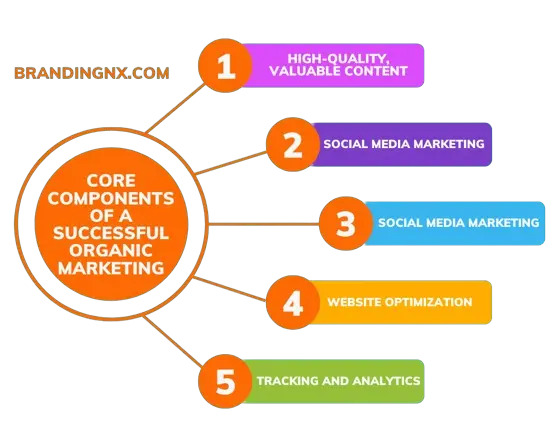Choosing the right organic marketing service provider can be crucial for achieving your business goals. Here are some key factors to consider, going beyond the initial points:
Your Marketing Goals: Specificity is key. While increasing brand awareness is a great goal, how will you measure it? Define success metrics like website traffic growth, social media engagement rates, or brand mentions. A strong provider will ask you about your target audience and help you establish benchmarks to track progress.
Align goals with strategy. Be sure the provider understands how organic marketing fits into your overall marketing strategy. They should be able to connect organic efforts to your desired outcomes. For instance, if your primary goal is lead generation, they should outline how their content strategy will nurture leads and convert them into paying customers.
Provider Expertise: Look for a data-driven approach. The provider should use data and analytics to inform their strategies and track progress towards your goals. They should be able to demonstrate their proficiency in keyword research, competitor analysis, and other SEO (Search Engine Optimization) best practices.
Content is king. Ask about their content creation capabilities. Strong organic marketing hinges on high-quality, informative content that resonates with your target audience. The provider should have a team of skilled writers who can create content across different formats, such as blog posts, social media content, and infographics.
Relevant Experience: Don’t just focus on industry experience. While it’s a plus, a provider with a proven track record of success in achieving similar goals for businesses of your size is equally important. Look for a provider who understands the unique challenges and opportunities faced by businesses in your space.
Case studies are your friend. Ask the provider for case studies that showcase their past work and the results they achieved for clients. These case studies should detail the specific strategies used, the challenges overcome, and the quantifiable results obtained.
Strong Reputation and Client Reviews: Look beyond testimonials on their website. Search for independent reviews on platforms like Clutch or social media. Pay attention to what past clients say about the provider’s communication, responsiveness, and overall effectiveness.
Pay attention to negative reviews. See how the provider addresses client concerns. A history of resolving issues positively reflects well on their customer service approach.
Communication Style and Transparency: Ask about communication frequency. How often will they provide updates on your campaigns? Will you have a dedicated point of contact or a team you’ll be working with?
Beware of black box approaches. Choose a provider who is transparent about the strategies they’re implementing and the reasoning behind them. They should be able to explain their SEO tactics, content creation process, and how they plan to measure success.
Budget: Understand the value proposition. Don’t just focus on the lowest cost provider. Consider the value they bring to the table in terms of expertise, experience, and the potential return on investment (ROI). A good provider will be able to demonstrate a clear path to achieving your goals and the measurable impact their work will have on your bottom line.
Be prepared to discuss your budget openly. A reputable provider will work with you to create a customized plan that aligns with your goals and budget constraints. They may offer tiered service packages or a la carte options to suit your specific needs.



















